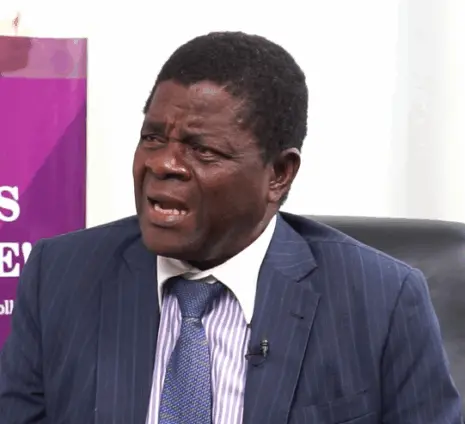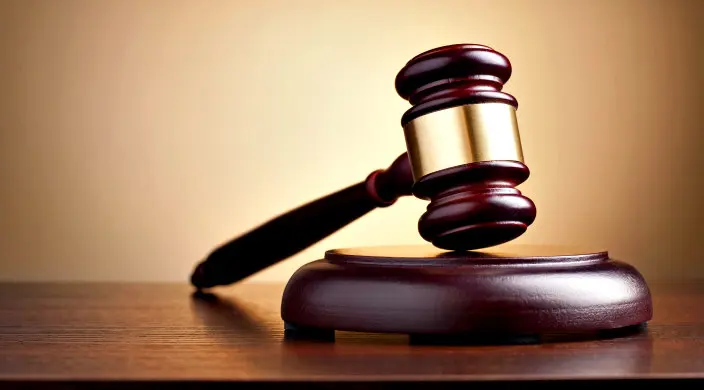The controversy surrounding Sammy Gyamfi, the National Communications Officer of the National Democratic Congress (NDC), and a video showing him gifting dollars to Patricia Asiedua, also known as Agradaa, has ignited a debate about ethical conduct in Ghanaian politics. Amidst the furor, Professor Kwadwo Appiagyei-Atua of the University of Ghana School of Law has criticized former President John Mahama’s response to the incident as merely a “slap on the wrist.” This incident, now widely referred to as the Sammy Gyamfi Gift Saga, raises serious questions about accountability and the standards expected of public figures.
The Sammy Gyamfi Gift Saga unfolded with the emergence of a video depicting Gyamfi presenting a sum of money, reportedly US dollars, to Agradaa. The footage quickly went viral, sparking public outrage and condemnation. Many Ghanaians viewed the act as inappropriate, especially given Gyamfi’s prominent position within the NDC.
In response to the widespread criticism, Sammy Gyamfi issued an apology, describing his actions as “an unfortunate act of indiscretion.” Following the apology, it was reported that the Chief of Staff had summoned Gyamfi and issued a caution regarding his conduct. Gyamfi stated that his actions were not driven by malicious intent but were rather taken out of context. “I deeply regret the incident and the negative attention it has brought,” he said.
Professor Appiagyei-Atua, however, argues that Mahama’s response—or lack thereof—fell significantly short of the ethical benchmarks expected of a leader committed to good governance. He believes that the situation warranted a more decisive and public response to underscore the importance of ethical conduct in public service. According to Appiagyei-Atua, a mere caution from the Chief of Staff does not suffice in addressing the gravity of the situation and the potential damage to public trust. “I think that if we really want to be seen to be serious about going by the ethics that he [President Mahama] has set for this government to fulfill, then what he has done, in my opinion, only constitutes a slap on the wrist,” he stated.
Appiagyei-Atua outlined several actions he believed should have been considered in response to the Sammy Gyamfi Gift Saga. These included a suspension for Gyamfi, a public apology from Gyamfi himself, and a formal statement from President Mahama to demonstrate the seriousness with which he views such ethical breaches. “At minimum, I would have expected a suspension or a public apology by Mr. Sammy Gyamfi, or even the president making a statement to show that he is serious about resetting the agenda,” he explained, emphasizing the need for visible and impactful measures.
Following Sammy Gyamfi’s apology and the caution issued by the Chief of Staff, Felix Kwakye Ofosu, a government spokesperson, announced that the Presidency considered the matter resolved. “So in view of that, the Presidency does not believe that any further actions ought to be taken beyond the apology and the caution,” Kwakye Ofosu stated. While the government has not provided explicit justification beyond stating the matter is closed, it is plausible that they considered Gyamfi’s apology and subsequent remorse as sufficient corrective action, aiming to avoid prolonged public scrutiny and maintain focus on other pressing national issues.
Professor Appiagyei-Atua also raised concerns about the broader moral and social contract implications of the incident. He suggested that such actions, when not adequately addressed, could erode public trust in government officials and institutions. The lack of a strong response, he argued, sends a message that ethical breaches may be tolerated, thereby weakening the foundation of accountability and responsible governance.
Furthermore, Appiagyei-Atua criticized what he perceives as a pattern of inconsistent political conduct across different administrations in Ghana, regardless of whether the New Patriotic Party (NPP) or the NDC is in power. He pointed out that ethical standards often seem to be applied selectively, depending on the political affiliation of the individuals involved. “This chameleon-like behaviour is something that is being played between the NPP and the NDC,” he noted, highlighting the need for consistent and impartial application of ethical principles across the political spectrum.
In conclusion, the Sammy Gyamfi Gift Saga has not only put a spotlight on the ethical conduct of public officials but has also raised questions about the effectiveness of the responses from those in positions of power. Professor Appiagyei-Atua’s critique underscores the perception that Mahama’s handling of the situation was weak and insufficient, potentially undermining public trust and setting a troubling precedent for ethical standards in Ghanaian politics. As the nation reflects on this incident, it remains to be seen whether it will impact Mahama’s political future and whether lessons will be learned to ensure greater accountability in the future.
Image Source: MYJOYONLINE






















